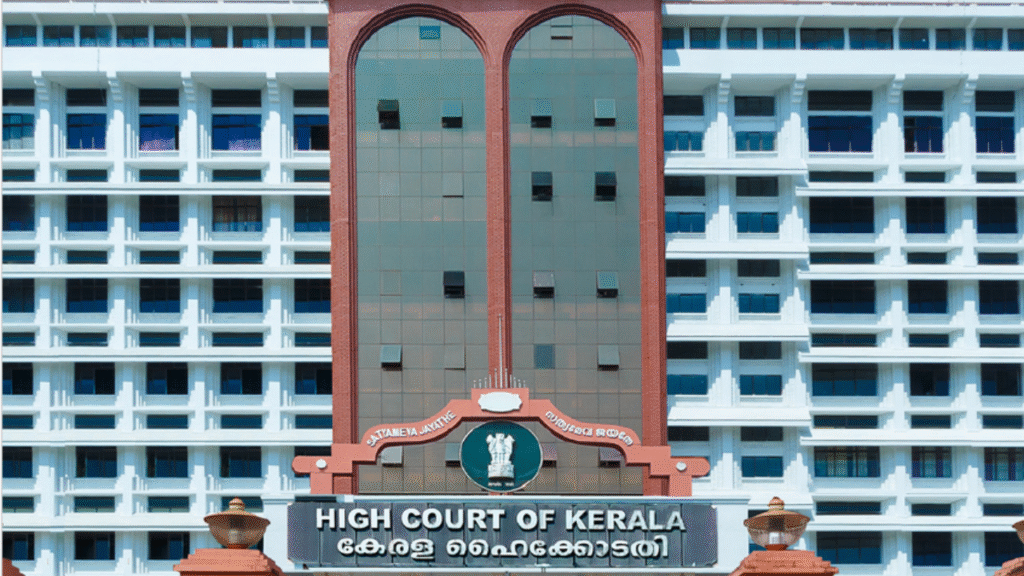Property Law – Building Permit – Harmonious Construction of Statutes – Agricultural Zone vs. Land Conversion for Residential Use.
(2025) 7 KCD 250 : 2025 KER 54553 : 2025 KLT OnLine 2510
Hon’ble Mr. Justice Harisankar V. Menon
Facts: The petitioner, P.P. Manoj Kumar, owned property in Thalassery Municipality, Kannur District, identified as an “agricultural zone” in a 2007 development plan. His application for a residential building permit was rejected by the Thalassery Municipality (Ext.P3) citing this development plan. The property was also included in the data bank under the Kerala Conservation of Paddy Land and Wetland Act, 2008. The petitioner, having no other site for construction, applied to the District Level Authorised Committee, which permitted conversion of five cents of paddy land for residential building construction (Ext.P4). The petitioner then challenged the Municipality’s rejection (Ext.P3) based on this permission (Ext.P4).
Arguments:
Municipality: Contended that building permit applications must adhere to the zoning provisions under the development scheme, citing Regional Town Planner v. Muhammed Rasheed [2019 (3) KLT 433] and the Kerala Town and Country Planning Act, 2016.
Petitioner: Argued that the permission granted by the District Level Authorised Committee (Ext.P4) should be given effect, and the orders (Exts.P3 and P4) should be construed harmoniously, relying on State of Kerala v. Falcon Infrastructures Ltd. [2025 KLT OnLine 2155].
Court’s Reasoning:
Acknowledged the Municipality’s reliance on Regional Town Planner regarding adherence to development schemes for future constructions.
Emphasized the principle of harmonious construction of statutory provisions, as laid down in Falcon Infrastructures Ltd.. The Falcon Infrastructures case held that provisions of different State enactments should be read together so that one does not defeat rights or privileges obtained under another (e.g., exemption under Kerala Land Reforms Act should not be defeated by the 2008 Act).
Applied these principles to the current case, stating that when the District Level Authorised Committee permitted conversion of the land for a residential building (Ext.P4) due to a genuine requirement, the Municipality was not justified in relying solely on the development scheme classifying the property as an “agricultural zone”.
Concluded that to do otherwise would render the benefits of Ext.P4 “a dead letter,” and harmonious construction between the Kerala Conservation of Paddy Land and Wetland Act, 2008 and the development scheme (under Kerala Town and Country Planning Act, 2016) was necessary, especially since both contexts described the land as agricultural.
Decision: The Writ Petition was allowed, and the Municipality’s rejection order (Ext.P3) was set aside. The Municipality was directed to re-process the petitioner’s building permit application within four months, specifically taking into account the benefits extended by the District Level Authorised Committee in Ext.P4.
Statutes & Rules Referred:
- Kerala Conservation of Paddy Land and Wetland Act, 2008
- Kerala Municipality Building Rules, 1999
- Kerala Town and Country Planning Act, 2016
- Kerala Land Reforms Act, 1963
Cases Referred:
- Regional Town Planner v. Muhammed Rasheed [2019 (3) KLT 433]
- State of Kerala v. Falcon Infrastructures Ltd. [2025 KLT OnLine 2155]
For Petitioner : Advs. R.Surendran & S.Mayukha
For Respondents : Advs. I.V.Pramod & T. Jayan (Government Pleader)


